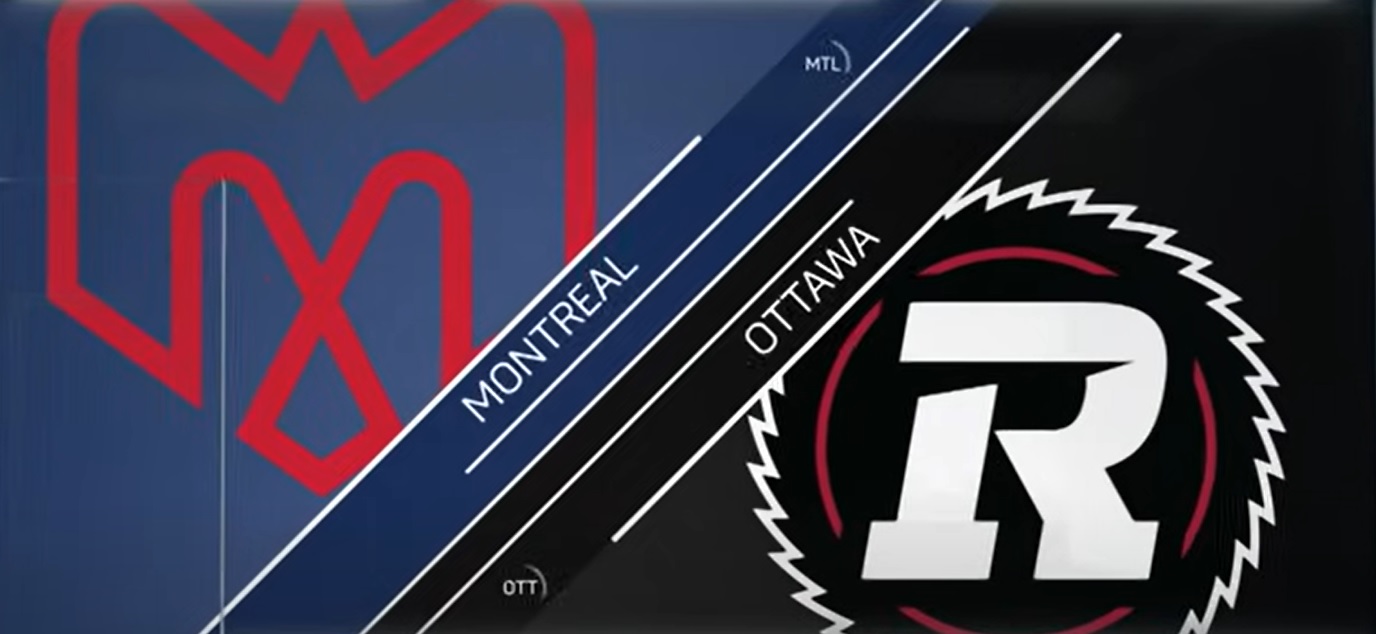
CFL WEEK 16: Montreal Alouettes vs. Ottawa Redblacks MATCH REVIEW

Montreal’s defense, with interceptions and a Deontay Ruffin touchdown, dominates Ottawa’s offense
Montreal’s defense was the defining factor in their victory over the Ottawa Redblacks, showcasing an aggressive and opportunistic style of play. Right from the start, the Alouettes set the tone with key interceptions, including a crucial pick by Deontay Ruffin, which he returned for a touchdown. This early defensive score put Ottawa on the back foot and rattled their quarterback, Drew Brown, who struggled to regain composure throughout the first half. Montreal’s ability to capitalize on Ottawa’s mistakes, particularly their turnovers, created constant pressure and disrupted any chance of rhythm for the Redblacks’ offense.
The defensive unit didn’t just rely on turnovers; they effectively shut down Ottawa’s passing game and contained their running plays. Montreal’s defensive line consistently pressured the quarterback, forcing him to make hurried decisions that led to mistakes. As a result, Ottawa’s offense was never able to generate sustained drives or find the end zone consistently. By combining an aggressive pass rush with disciplined coverage, Montreal’s defense effectively stifled any momentum Ottawa attempted to build, securing a commanding lead that allowed their offense to play with confidence and control the tempo of the game.
Ottawa’s turnover woes: The team couldn’t get any momentum early in the game.
Ottawa’s struggles with turnovers were a critical factor in their defeat against the Montreal Alouettes, as quarterback Drew Brown’s multiple interceptions in the first quarter severely hindered the team’s ability to build any offensive momentum. The first interception, returned for a touchdown by Montreal’s Deontay Ruffin, was a particularly damaging blow, as it not only gave Montreal an early lead but also shook Brown’s confidence. His second interception shortly after compounded Ottawa’s problems, as the team found itself consistently fighting from behind. These early mistakes left Ottawa unable to establish their game plan, with missed opportunities and turnovers allowing Montreal to dominate the pace of the game.
The turnovers also limited Ottawa’s ability to maintain offensive rhythm, preventing the team from sustaining drives and putting points on the board. Brown’s struggles were exacerbated by Montreal’s relentless defensive pressure, which forced hurried throws and led to further mistakes. As the turnovers piled up, Ottawa’s offense appeared disjointed and unable to respond, missing key chances to capitalize on Montreal’s defensive lapses. The early interceptions were not only costly in terms of points but also psychologically, as Ottawa was unable to recover from the early setbacks, resulting in a disheartening loss that highlighted their offensive inefficiencies.
Montreal controlled the game with a balanced attack and strong defense
Montreal’s balanced attack was a key factor in their dominance, seamlessly blending strong defensive efforts with an efficient offense. The defense held the opposition in check, allowing Montreal to dictate the pace of the game. On offense, they capitalized on every opportunity, mixing a powerful ground game with precise passing. A standout moment came when Montreal executed a flawless rushing touchdown, demonstrating their ability to push through tough defensive lines and maintain control of the field.
Offensively, Montreal’s versatility shone with a successful long pass to Charlest Rambo, further proving their capability to threaten through the air. This play, in combination with their steady ground game, kept the opposing defense off balance. By efficiently managing both ends of the field, Montreal showcased their ability to control the tempo and rhythm of the game, making them a formidable force on both sides of the ball.
Ottawa’s late surge fails to overcome Montreal’s early mistakes and constant pressure
Ottawa made a valiant late push in the game, highlighted by a touchdown from Justin Hardy that briefly reignited hope for a comeback. However, the team’s earlier mistakes, including missed opportunities and turnovers, proved too costly to overcome. Montreal’s relentless pressure on both sides of the ball kept Ottawa from building any sustained momentum throughout most of the game, forcing them into uncomfortable positions that limited their offensive production.
Even with Hardy’s late-game heroics, Ottawa struggled to break through Montreal’s tight defense, which had controlled much of the game. Montreal’s consistent pressure stifled Ottawa’s attempts to make up ground, and their early lead proved insurmountable. The final push from Ottawa showed heart, but ultimately, their early-game missteps and Montreal’s efficiency in maintaining control sealed the game’s outcome.
Special teams a deciding factor: Montreal’s special teams made the difference, securing the win
Montreal’s special teams were a decisive factor in their victory, with standout performances that set the tone for the game. James Lecher Jr. delivered key punt returns, consistently placing the team in favorable field position. These crucial returns allowed Montreal to capitalize on shorter fields, converting them into field goals that stretched their lead. Lecher Jr.’s ability to read the field and find gaps in Ottawa’s coverage added an extra layer of threat, ensuring that Montreal’s offense had every opportunity to succeed.
Beyond the offense and defense, Montreal’s special teams unit helped control the flow of the game. The field goals that followed Lecher Jr.’s returns contributed directly to the scoreboard, giving Montreal a crucial edge. These contributions took pressure off both the defense and the offense, while the special teams consistently outperformed Ottawa’s in critical moments. In a tightly contested match, Montreal’s ability to turn special teams plays into points played a pivotal role in securing their victory.
FAQ: Montreal Alouettes vs. Ottawa Redblacks Game Highlights
Q1: Who won the game between Montreal Alouettes and Ottawa Redblacks?
- A1: The Montreal Alouettes won the game, securing a comfortable victory over the Ottawa Redblacks.
Q2: What were the key moments of the game?
- A2: Key moments include:
- A defensive touchdown by Montreal’s Deontay Ruffin after an interception.
- Multiple turnovers by Ottawa, including two interceptions in the first quarter.
- Montreal’s offensive drive with a touchdown from a long pass and a rushing play.
- A late touchdown by Ottawa’s Justin Hardy that wasn’t enough to turn the game around.
- Montreal’s special teams contributing to the win with strong punt returns and a field goal.
Q3: How did Montreal’s defense perform?
- A3: Montreal’s defense dominated, with key interceptions and a touchdown early in the game. Their defense pressured Ottawa’s quarterback and capitalized on mistakes.
Q4: How did Ottawa perform in the game?
- A4: Ottawa struggled throughout the game, particularly with turnovers, including multiple interceptions. Despite a late touchdown, their offensive performance was inconsistent.
Q5: How did special teams impact the game?
- A5: Montreal’s special teams played a pivotal role. James Lecher Jr. had significant punt returns, one setting up a field goal, which contributed to Montreal maintaining control of the game.
Q6: Did Ottawa show any signs of a comeback?
- A6: Ottawa scored a late touchdown, but it was too late to overcome their early mistakes and the strong performance by Montreal.
Q7: What were the final standout performances?
- A7: Standout performances came from Deontay Ruffin with his interception touchdown, Cody Fajardo with key passes, and James Lecher Jr. on special teams with his big punt returns.

